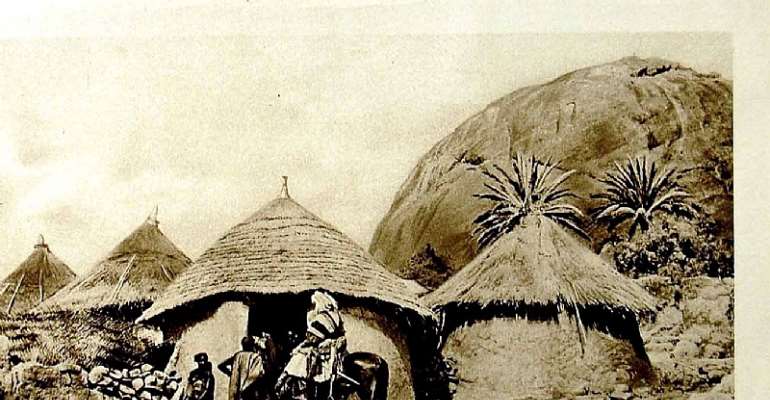Who Are The Nupes?

Today most people think that the national name ‘Nupe’ applies only to a clearly-defined linguistic group found mainly in Niger South, Kwara North and parts of Kogi, FCT,Kaduna and other states of the Nigerian Federation. The truth, however, is that the Nupe phenomenon is far more than the parochial definition above.
The more we research into the Nupe question the more we discover that the Nupe identity encompasses far more than the traditional definition of Nupe as a tribe or language found in Niger, Kwara and Kogi states. The definition of the Nupe identity has been evolving and expanding over the decades as more and more research data emerge.
First there is this discovery that the Nupe also include the various so-called ‘Sub-tribes’ including the Dibo, Kakanda, Gupa, Kupa, Bassange, etc. Then came about the ongoing discovery that Nupe actually includes all the tribes of the Nigerian Middle Belt including the Gbagyi, the Igbira, the Igala, the Tiv, the Jukun, etc.
On the other hand there is also the unfolding discovery that the whole Kororofa complex, comprising of over two-third the entire population of Nigeria, is Nupe. This will make Nupe the largest ethnic group or tribe in Nigeria. In the beginning we all thought that the Nupe people are those who speak what is today known as the Nupe language.
These people are variously known as the Nyipe by the Gabgyis; as the Nufawa by the Hausas; as the Tapa by the Yoruba's; etc, are, as we have mentioned before, concentrated in Niger and Kwara states and are to be found in all the neighbouring states and the FCT. This classical Nupe people are said to have a tradition alleging that a certain mythical figure, called Tsoede, was their eponymous founder. The father of this Tsoede was said to have been an Igala prince who married a Nupe princess to give birth to the bastard/half-caste founder of Nupe. This was the traditional story of the Nupe people as recorded by the earliest of the European expeditionists and missionaries to arrive Kin Nupe.
By the time of the Lander brothers and Bishop Samuel Ajayi Crowther all that was known about Nupe cosmogony was centred on the personality of Tsoede the, so-called, Founder of Nupe. Professor Leo Frobenius came along, in 1911, to give academic credence and authority to this traditional history of the Nupe people. It was frequently claimed in those days that the history of the Nupe Nation does not go beyond the emergence of Tsoede in the 14th or 15th century.
It was said that the Nupes had no history and did not exist as a nation until Tsoede came and founded the Nupe Nation. But by the time that Professor S.F. Nadel arrive Kin Nupe in the 1930s and plunged into his detailed sociological researches on the Nupe peoples he discovered a lot of inconsistencies in the traditional and conventional history of the foundations of the Nupe Nation as being centred wholly on the Tsoede personality. Professor Nadel was the first to emphasise the existence of a pre-Tsoede Nupe Nation and thereby extending the existence of the Nupe Nation and the Nupe peoples to the period before the birth and emergence of Tsoede.
Professor Nadel actually came up with his elaborate story of what he termed the ‘Bini Confederacy’ which he said was a mighty federation of Nupe city states that flourished long before the emergence of Tsoede. Professor S.F. Nadel also, and more importantly, discovered and extended the Nupe Identity beyond the traditional linguistic group known as the Nupe or what he called the ‘Nupe Zam’.
It was Professor Nadel who popularised the idea of referring to related lects anddialects as ‘Nupe Sub-tribes’. These he listed as including the Dibo, Kakanda, Gupa, Bassange, etc, etc. So, we see that the Nupe Identity and Nation comprises of not just the classical Nupe people but also the so-called Nupe subtribes.
With this new definition we will see that the Nupe Nation will extend to include greater parts of not only Niger and Kwara State but also Kogi, the FCT, Nasarawa, Kaduna and many others. But in the 1950s and ’60s the flood of historiography research into Nigerian history and culture added another dimension to the Nupe Identity question with people like Professor Michael Mason categorically demonstrating that Tsoede was not the Founder of Nupe. He pointed out that the Nupe Nation and Nupe people existed for several centuries on before the time of Tsoede.
Professor Michael Mason insisted that Tsoede should rather be referred to as the Re-founder of Nupe. Professor Michael Mason also pointed out that the traditional period of the 13th or 14th century assigned to Tsoede by scholars including Professor Leo Frobenius and Professor S.F. Nadel is wrong.
It is the contention of Professor Michael Mason that Tsoede lived and flourished long before the 13th or the 14th century. Undoubtedly the great Nupe sons and daughters have contributed significantly to the economic, education, security, infrastructure, social and political development of Nupe kingdom and Nigeria at large.
They have serve in capacity of leadership rousing from office of Governors, Deputy Governors, Senators, Ministers, Directors, highest rank of Nigerian Security Agencies, Generals, Controller Generals, Inspector General of Police, Commandant General of NSCDC, Engineers, Architecturers, Chartered Accountants, Bankers, Educationists, Professional Medical Doctors and Health practitioners, Academia's Professors and many others who are numerous to mention.
I strongly believe that President Muhammadu Buhari and National Assembly will grant Nupe herself sovereignty (state) by 2017.
Usman Mohammed. Mass Communication,
IBB University, Lapai. 07060815443
